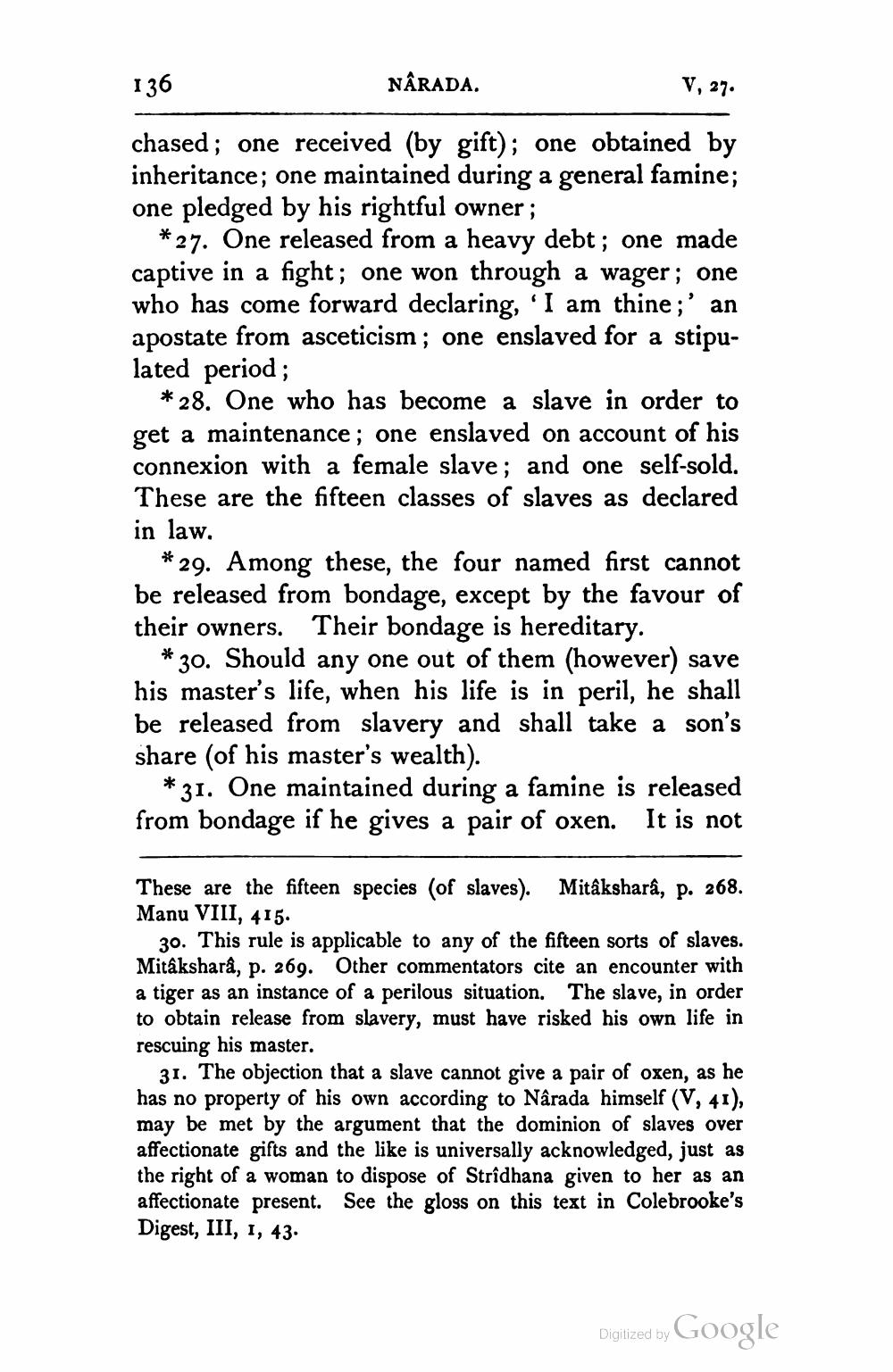________________
136
NÂRADA.
V, 27.
chased; one received (by gift); one obtained by inheritance; one maintained during a general famine; one pledged by his rightful owner ;
*27. One released from a heavy debt; one made captive in a fight; one won through a wager; one who has come forward declaring, 'I am thine;' an apostate from asceticism; one enslaved for a stipulated period;
*28. One who has become a slave in order to get a maintenance; one enslaved on account of his connexion with a female slave; and one self-sold. These are the fifteen classes of slaves as declared in law,
*29. Among these, the four named first cannot be released from bondage, except by the favour of their owners. Their bondage is hereditary.
* 30. Should any one out of them (however) save his master's life, when his life is in peril, he shall be released from slavery and shall take a son's share (of his master's wealth).
*31. One maintained during a famine is released from bondage if he gives a pair of oxen. It is not
These are the fifteen species (of slaves). Mitäkshara, p. 268. Manu VIII, 415.
30. This rule is applicable to any of the fifteen sorts of slaves. Mitakshara, p. 269. Other commentators cite an encounter with a tiger as an instance of a perilous situation. The slave, in order to obtain release from slavery, must have risked his own life in rescuing his master.
31. The objection that a slave cannot give a pair of oxen, as he has no property of his own according to Narada himself (V, 41), may be met by the argument that the dominion of slaves over affectionate gifts and the like is universally acknowledged, just as the right of a woman to dispose of Stridhana given to her as an affectionate present. See the gloss on this text in Colebrooke's Digest, III, 1, 43.
Digitized by Google




